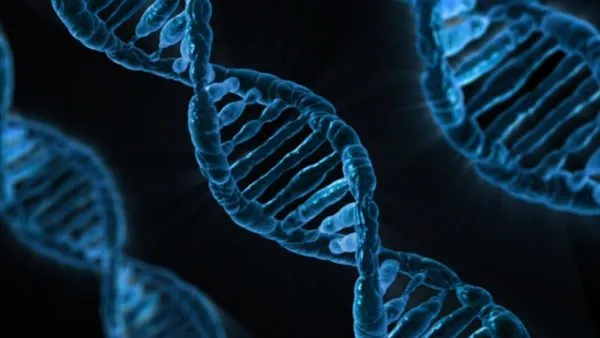What Are the Ethical Implications of Genetic Engineering?
Genetic engineering, the process of manipulating an organism’s DNA to alter its genetic makeup, has been a subject of intense scientific research and debate for decades. While the technology offers tremendous potential for advancing medicine, agriculture, and other industries, it also raises significant ethical concerns. These concerns stem from questions about the potential risks and benefits of altering genetic material, both for individuals and society as a whole.
In this article, we will explore the ethical implications of genetic engineering, focusing on its applications in human health, agriculture, and environmental science. By examining the moral and philosophical challenges posed by genetic engineering, we can gain a better understanding of its potential to transform our world.
1. The Promise of Genetic Engineering
Before delving into the ethical concerns, it is important to understand the promises that genetic engineering holds. The ability to manipulate DNA can potentially offer solutions to many of the world’s problems, from eradicating genetic diseases to improving food security.
Applications in Medicine:
- Gene Therapy: One of the most promising applications of genetic engineering is gene therapy, which involves altering the genes inside a person’s cells to treat or prevent disease. This has the potential to cure inherited genetic disorders, such as cystic fibrosis, muscular dystrophy, and sickle cell anemia.
- Personalized Medicine: Genetic engineering can enable more personalized approaches to healthcare, where treatments are tailored based on an individual’s genetic makeup. This could lead to more effective treatments with fewer side effects.
- Cancer Treatment: Advances in genetic engineering might also lead to new ways to fight cancer. By manipulating genes to enhance the immune system’s ability to fight cancer cells, scientists hope to develop more targeted and effective cancer therapies.
Applications in Agriculture:
- Genetically Modified Organisms (GMOs): Genetic engineering is widely used in agriculture to create crops that are more resistant to pests, diseases, and harsh environmental conditions. This has the potential to increase food security and reduce the need for harmful pesticides.
- Improved Nutritional Content: Genetic engineering can be used to enhance the nutritional value of crops. For example, genetically modified rice (Golden Rice) has been developed to contain higher levels of vitamin A, which can help combat malnutrition in developing countries.
Environmental Applications:
- Climate Change Mitigation: Genetic engineering can help address environmental challenges by creating plants that absorb more carbon dioxide or crops that are more drought-resistant, helping to mitigate the effects of climate change.
- Conservation of Species: Genetic engineering could also be used to preserve endangered species or restore extinct species by resurrecting them using genetic material from preserved DNA.
2. Ethical Concerns in Human Genetic Engineering
Human genetic engineering, especially when it involves editing the human germline (genes passed on to future generations), raises significant ethical concerns. These concerns revolve around issues of consent, potential harm, and the possibility of unforeseen consequences.
Designer Babies and Eugenics:
One of the most controversial aspects of human genetic engineering is the potential for creating “designer babies.” This refers to the practice of selecting or altering embryos to ensure the child has specific genetic traits, such as intelligence, physical appearance, or athletic ability. While this could theoretically allow parents to avoid passing on genetic diseases, it also raises questions about social inequality and the potential for genetic “enhancement.”
- Eugenics Concerns: The practice of selecting embryos based on certain desirable traits has been compared to the eugenics movement of the early 20th century, which sought to improve the genetic quality of the human population. Critics argue that genetic engineering could lead to a society where certain traits are valued over others, potentially leading to discrimination and the marginalization of people with disabilities or other “undesirable” characteristics.
- Consent Issues: Since genetic modifications made to embryos are passed on to future generations, the individuals who are born as a result of these modifications cannot consent to the changes made to their genetic code. This raises questions about the ethical implications of making irreversible decisions on behalf of future generations.
Germline Editing:
The modification of the human germline (the DNA in eggs, sperm, or embryos) is particularly controversial because it affects not only the individual but also their descendants. While germline editing could potentially eliminate inherited diseases, it also raises concerns about unintended consequences.
- Unpredictable Consequences: Editing the human genome could have unforeseen effects on an individual’s health or on future generations. Even small changes in the DNA can have wide-ranging effects on the body, and we do not yet fully understand all the potential risks.
- Equity and Access: There is a concern that the ability to edit the human genome may only be available to the wealthy, leading to inequality in access to genetic technologies. This could exacerbate existing social inequalities, as those with access to genetic enhancements could gain significant advantages over others.
3. Ethical Issues in Agricultural Genetic Engineering
Genetic engineering in agriculture, particularly the development of genetically modified organisms (GMOs), has sparked debates about its safety, environmental impact, and the corporate control of food production.
Environmental Concerns:
- Biodiversity Loss: The widespread use of genetically modified crops could potentially reduce biodiversity. If genetically modified crops crossbreed with wild species or other crops, it could lead to the unintentional spread of modified genes, altering ecosystems and potentially displacing native species.
- Pesticide Resistance: Some genetically modified crops are designed to resist pests, but over time, pests may evolve resistance to these crops, leading to an arms race between farmers and pests. This could result in the use of even more potent pesticides, which could harm the environment.
Corporate Control of Food:
- Monopolies in Agriculture: Large biotechnology companies that develop genetically modified seeds often hold patents on the crops, giving them significant control over the food supply. This could lead to monopolies in the agriculture industry, reducing competition and increasing the prices of seeds and food.
- Impact on Small Farmers: The cost of genetically modified seeds and the need to purchase new seeds each year (as they are often sterile) can be a financial burden for small-scale farmers. This could push farmers toward unsustainable farming practices or drive them out of business altogether.
Health Concerns:
- Long-Term Health Effects: While genetically modified crops are generally considered safe for human consumption, there is still some concern about the long-term health effects of consuming genetically engineered foods. Some worry about the potential for allergic reactions or unintended side effects.
- Labeling and Consumer Choice: Many people believe that genetically modified foods should be clearly labeled so that consumers can make informed choices. However, there is ongoing debate about whether labeling should be mandatory and how to balance consumer choice with the interests of the food industry.
4. Ethical Implications in Environmental Genetic Engineering
Environmental genetic engineering is a growing field that aims to use genetic modifications to address environmental challenges such as climate change and biodiversity loss. While the potential benefits are significant, the ethical implications of such technologies are complex.
Ecological Risks:
- Unintended Environmental Consequences: Introducing genetically modified organisms (GMOs) into the environment could have unintended consequences. For example, engineered plants designed to absorb more carbon dioxide could outcompete native species, disrupting ecosystems.
- Gene Editing in Wild Species: The introduction of gene-edited organisms into the wild raises concerns about unintended changes to the gene pool of natural populations. While gene editing could be used to save endangered species, it could also lead to unforeseen ecological consequences.
The “Playing God” Argument:
Some critics of environmental genetic engineering argue that humanity should not interfere with natural ecosystems in such an invasive way. This line of reasoning asserts that manipulating nature could have profound and irreversible consequences, and humans may not have the ethical right to alter the genetic makeup of entire species or ecosystems.
5. Conclusion: Balancing Innovation with Ethical Responsibility
Genetic engineering holds incredible promise for addressing some of the most pressing challenges of our time, from curing diseases to feeding a growing global population. However, as we continue to develop these technologies, it is crucial to carefully consider the ethical implications. We must strike a balance between innovation and caution, ensuring that genetic engineering is used responsibly and that its potential risks are minimized.
In the coming years, continued dialogue, research, and regulation will be needed to ensure that genetic engineering is implemented in ways that benefit humanity while upholding ethical standards. By addressing these concerns, we can harness the power of genetic engineering to create a better future while safeguarding against its potential harms.

